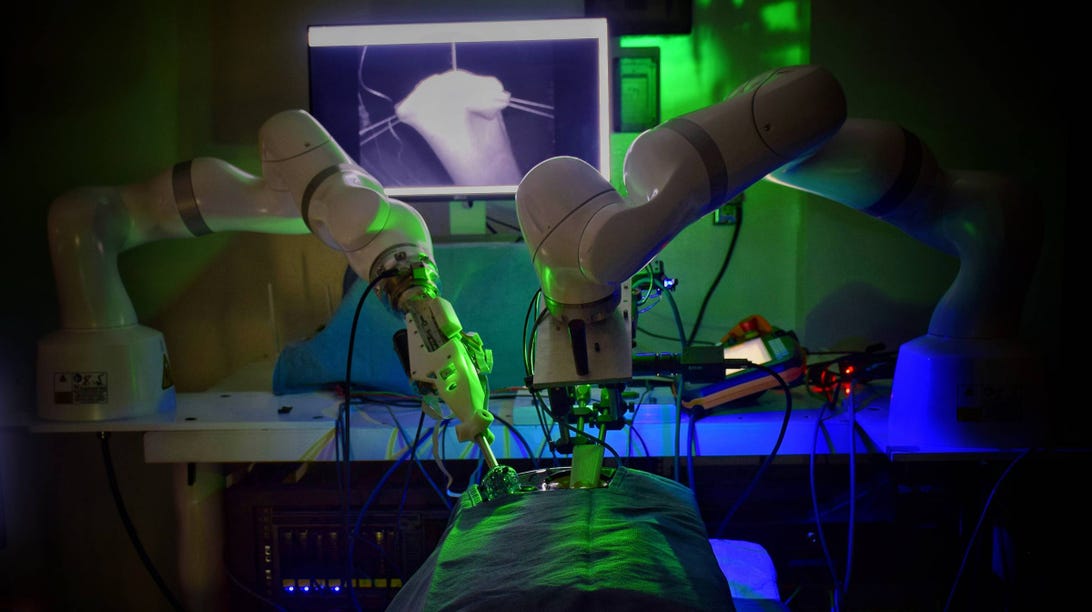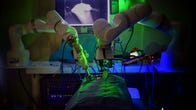
The Smart Tissue Autonomous Robot (STAR).
Axel Krieger and Jin Kang/Johns Hopkins UniversityA robot has successfully performed difficult, soft-tissue surgery on four pigs, Johns Hopkins University said Wednesday, calling this “a significant step toward fully automated surgery on humans.”
The Smart Tissue Autonomous Robot, or STAR, proficiently connected two ends of an intestine, a difficult procedure known as intestinal anastomosis. Soft-tissue surgery is a special challenge for robots because of its unpredictability. If an obstacle arises during a procedure, the robot must quickly adapt.
The news came alongside a paper in Science Robotics detailing the robot and process.
“Our findings show that we can automate one of the most intricate and delicate tasks in surgery: the reconnection of two ends of an intestine,” said senior author and Johns Hopkins professor Axel Krieger. “The STAR performed the procedure in four animals and it produced significantly better results than humans performing the same procedure.”
STAR was guided by a machine learning-based tracking algorithm, developed by Johns Hopkins professor Jin Kang and his students. The robot also relied on a special endoscope.
“What makes the STAR special is that it is the first robotic system to plan, adapt, and execute a surgical plan in soft tissue with minimal human intervention,” said research scientist and first author Hamed Saeidi.
The Johns Hopkins team that worked on the research also included Justin D. Opfermann, Michael Kam, Shuwen Wei and Simon Leonard. Michael H. Hsieh of the Children’s National Hospital also contributed.


